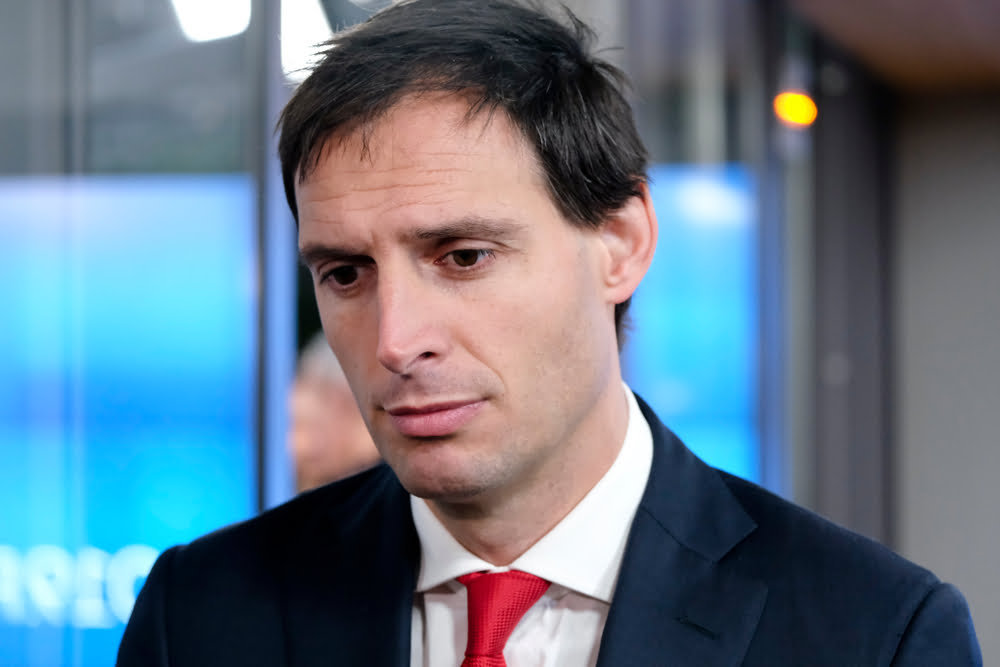While King Willem Alexander cuts short the holiday after the resignation of the cabinet, D66 leader Jan Paternotte accuses Rutte of not being prepared to reach a compromise in order to break the political impasse.
The Rutte IV cabinet may have fallen, but this does not mean that the system of the Dutch government will come to a standstill. On the contrary, the country continues to function even in this period of political change.
The irreconcilable positions on asylum policy between the VVD and CDA on the one hand, and D66 and the ChristenUnie on the other, have led to the fall of the Rutte IV cabinet. The desire of the VVD and CDA to reduce the migration flow met fierce opposition from their coalition partners, resulting in a political impasse and eventually the dissolution of the cabinet. This political turn means that the Dutch are getting ready to go to the polls again.
This difficult period in Dutch politics offers an opportunity for reflection and reassessment.
The Rutte IV cabinet remains in place and handles all day-to-day matters that are necessary to keep the country running. This means ongoing projects, social services, education, healthcare, law enforcement and other critical government services will continue to function normally. Although a caretaker cabinet is reluctant to adopt new legislation, it is not impossible. Legislative initiatives with urgent needs or broad parliamentary support can still be implemented.
Get on
The duties of the civil servants will also continue. These crucial players in the government apparatus ensure continuity of service, regardless of the political context. Their day-to-day activities, ranging from enforcing existing laws to supporting infrastructure and public services, continue.
The democratic process continues. New elections are organized to elect a new cabinet. While this period of transition brings with it uncertainties, it is also a time when citizens have the opportunity to make their voices heard and contribute to the future direction of the country.

In response to the fall of the Rutte IV cabinet, CDA leader Wopke Hoekstra called the decision to dissolve the cabinet "unnecessary" and "very disappointing". According to Hoekstra, it is difficult to explain that the four government parties have not been able to bridge their differences.
While the fall of the Rutte IV cabinet is indeed an important event with far-reaching political implications, it is certainly not the end of Dutch government activities. The system is designed to be flexible and keep going despite changes at the top. This resilience demonstrates the strength of our democratic institutions and our ability to persevere even in times of change.
verkiezingen
The Netherlands will not go to the polls until mid-November at the earliest, according to a recent announcement by the Electoral Council. Meanwhile, VVD party leader Sophie Hermans is already looking ahead to the new elections and excludes cooperation with the PVV.
Hermans made her position clear during a performance on the Op1 program, in which she stated: “I don't see that happening. Because we have said things about that before, nothing has changed.” These statements remain in line with the position of the VVD in previous elections, where the party excluded both the PVV and the FVD as possible partners.
According to Hermans, the core of this incompatibility lies in the differing views on asylum policy. “The PVV's asylum proposals are not at all in line with those of her party,” she said. She further emphasized the PVV's radical approach to the migration issue, with Geert Wilders aiming for a complete stop on asylum seekers and an exit from Europe.
Despite this clear contrast between the VVD and the PVV, Geert Wilders remains open to cooperation. The PVV leader stated earlier in the evening: "My party is ready". He argued that the PVV is the party par excellence to form a majority to significantly limit the influx of asylum seekers.

After the fall of the Rutte IV cabinet, Minister of Finance Sigrid Kaag refrained from directly assigning a guilty party. She did note, however, that last week there was more tension than she thought necessary, a possible reference to internal strife within the cabinet.
Unlike his colleagues, who have been reluctant to point out a direct culprit for the fall of the Rutte IV cabinet, D66 leader Jan Paternotte has not minced words and pointed directly to Prime Minister and VVD leader Mark Rutte as the main cause of the political crisis.
In response to the fall of the Rutte IV cabinet, the leader of the Christian Union, Mirjam Bikker, has indicated that unfortunately it has not been possible to arrive at a jointly supported package of proposals. The stumbling block turned out to be the issue of family reunification in the migration debate. Bikker emphasized the core value of the ChristenUnie that children should be able to grow up with their parents. “For us, one of the values that is important in proposals is that children grow up with their parents, so that they can take care of them. As a family party, we stand for that. This is how we weighed the various proposals.”
Despite the fall of the cabinet, Bikker has expressed her support for Prime Minister Rutte's intention to resign to the King and to continue to form a government with the current coalition on a caretaker basis. “We support the Prime Minister's intention to resign to the King for the current cabinet and to continue to form a government with the current coalition on a caretaker basis,” said Bikker.



